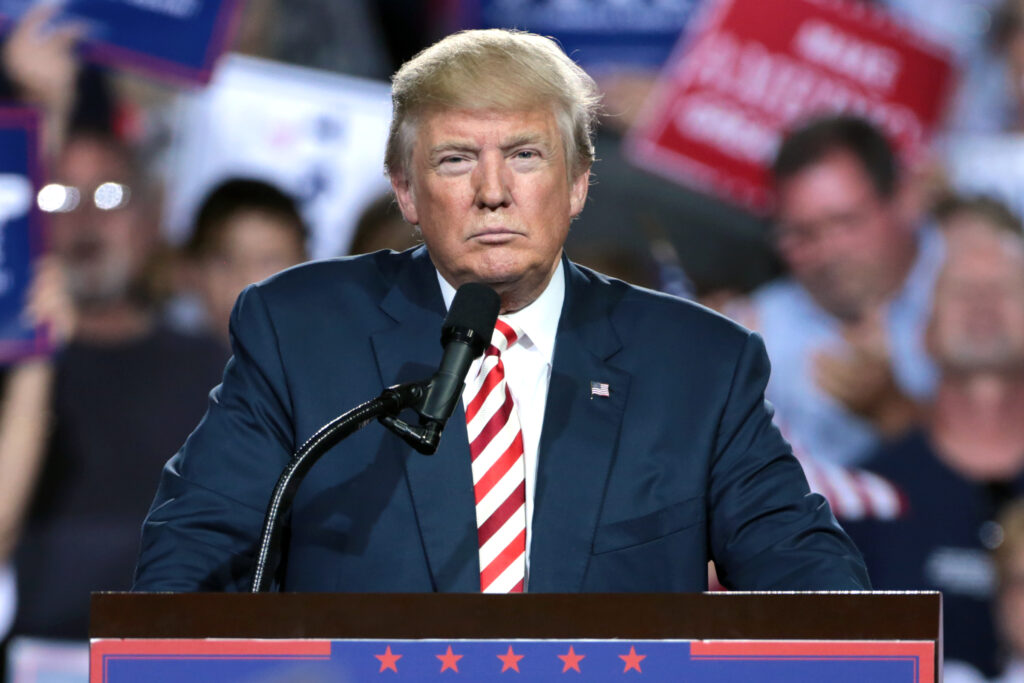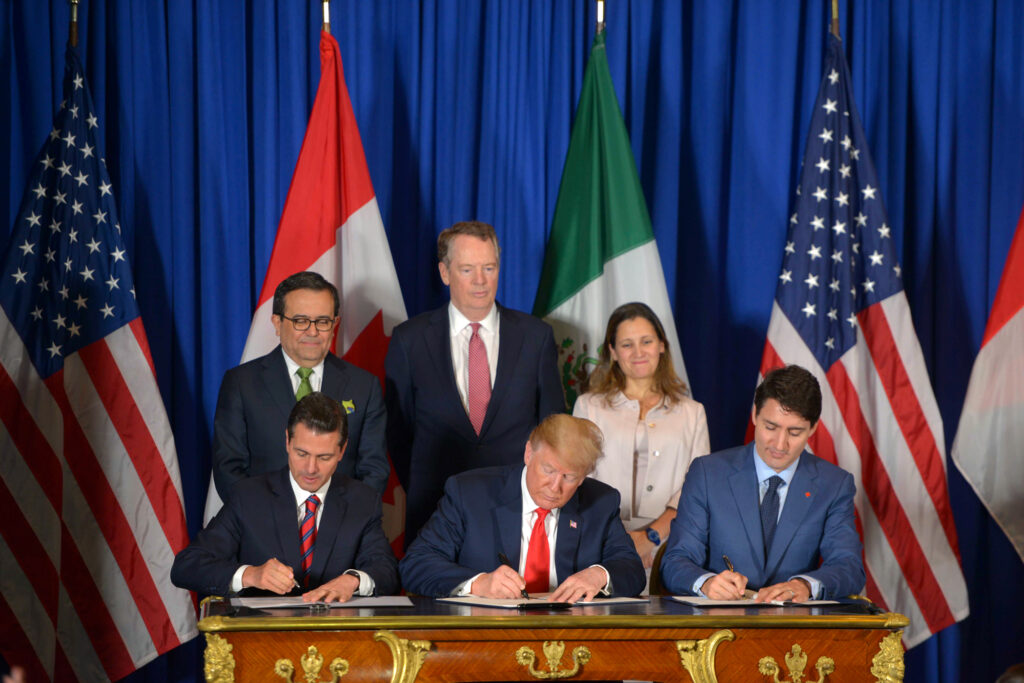
By Eli Ridder
Most could not have guessed when Donald J. Trump rode down the escalator in New York City to launch his campaign for president on June 16, 2015, that it would have a lasting impact on the longtime brotherhood between the United States and Canada. Over the next five years, Canadians watched, astounded and sometimes with horrified awe, as the billionaire businessman defied the political odds to take charge of the world’s oldest modern democracy and tried his hardest to bend it to his own will.
Andrew Cohen, who has taught journalism for several years at Carleton University, is counting on Trump being a one-time occurrence. “I’m hoping in the sweep of history Donald Trump will have just been a nightmare,” Cohen said.
The Trump-led effort to renegotiate the North American Free Trade Agreement was one of the only long-lasting practical impacts of his administration. “We had no choice but to go along with that, and the negotiations…were, at points, contentious and difficult, intense and abrasive.”

In the end, it modernized an old trade agreement into a new standard. Mr. Cohen argued that, if the new NAFTA is the one literal element of the Trump years that remain past his time in power, the future impact is not earth-shattering. Since World War II, Canada helped form the United Nations, joined the North Atlantic Treaty Organization, entered into the G8, signed onto the Paris Climate Accords and agreed to the Trans-Pacific Partnership – all alongside or in partnership with Washington, D.C.
For the four years Trump was in office, Ottawa was tasked with adjusting to the unpredictable “instincts, and the rages, and the material behavior of the president of the United States.”
Over the course of the Trump presidency, the White House shocked its traditional allies with its approach to global trade, by imposing tariffs without warning or negotiation and pulling out or attacking international trade organizations. No one was more taken aback than Ottawa when the U.S. placed a 25 per cent tariff on steel and aluminum imports under the guise of Canada being a “national security threat,” a descriptor the U.S. trade representative confirmed to a Senate committee in July 2018.
Professor Sui Sui of the Ted Rogers School of Management spoke with Scribe about the Trump administration’s aggressive approach and that it was not helpful to the businesses it purported to help. “In the long run, it’s damaging,” she explained. “Even in the short run, it’s damaging.” The former president’s abrasive approach to trade created uncertainty for small businesses that rely on cross-border supply chains, such as with the auto industry. It’s expected this will be resolved in Biden’s administration.
Michael Desch is a political science professor at the University of Notre Dame. He said that at a barebones level, the relationship between the United States, Canada and the rest of North America largely remained unchanged. “I think the reality of the relationship among those three countries just isn’t going to change, depending upon who’s getting their mail at 1600 Pennsylvania Ave.,” Mr. Desch said. He also argued that Mr. Trump was larger than life because of “his hyperbolic rhetoric, and things like that, but I think it’s important to look beyond that; there are limits to what any American president can do.”

Prime Minister Justin Trudeau was the first world leader to congratulate then President-elect Joseph R. Biden when the former vice president was projected to win the presidency on Nov. 7, 2020. Trudeau said he was “really looking forward” to working with the new president, and that he has deep ties to the Biden campaign. He called the president-elect two days later, reportedly the first, a move Cohen said was definitely intentional.
Dr. Adam Chapnick, the deputy director of education at the Canadian Forces College said that Canada will have to adjust to a new administration after the scars left from the previous one. “There will be an understanding that things will be different under a new president, but it will take a while for the machinery of government and the thinking of the prime minister’s office to adjust to the new situation.”
“There will be some caution,” Dr. Chapnick said. “We won’t just simply bounce back to the way that the government can seat the Canada-U.S. relations at the end of the Obama era.” The Canadian experts who spoke to Scribe all emphasized that the relationship between the United States and Canada is one that existed since Canada’s founding and that it would take more than one president to ruin a relationship between the world’s strongest international allies.
Cohen made it clear that, in the end, “If two countries could pick neighbours, with whom they would live in peace, you couldn’t do much better, in a sense, than Canada and the United States.”